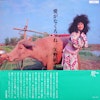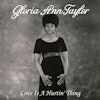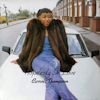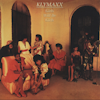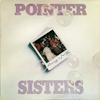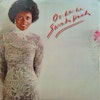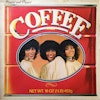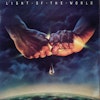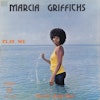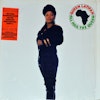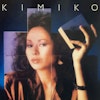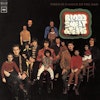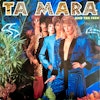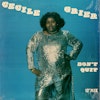Originally hailing from northern England near Leeds, Emma-Jean Thackray took to music early on, discovering the magnetism of the local brass bands. She pursued music wholeheartedly and on her own, finding inspiration wherever she could. Thackray’s chance discovery of jazz music led her down the path of academia, but it was her love of hip-hop and dance music that really shaped the music that would ultimately put her on the map.
The soaringly spiritual Yellow is a departure from her earlier work and her first full-length album. She has maintained the jazz aesthetic that she has crafted over her previous handful of EPs, tasteful collections of contemporary and free jazz that had been her staple. Yellow shows Thackray’s full palette as a studied composer and arranger, blending horns with strings along with hip-hop and EDM. The album also focuses primarily on her voice and the voices of others, rather than her regular trumpet.
Thackray maintains a singular voice as a musician, one that she has continued to pursue independently. Her own Movementt record label is the home of Yellow, along with her Walrus and Rain Dance EPs (both from 2020).
Wax Poetics took some time to speak to Thackray about her incredible ascension, her new album, and what will come next.
As a young person from the quieter confines of Yorkshire, how did you initially get interested in music, and what was the local scene that fostered you like?
For me, it was starting off doing that brass band kind of stuff. So I started playing as a little kid, and there’s a community brass band in the area. That’s really where I forged just a love for music and playing with other people, learning to make a good sound. Then it was my teens when my world started to open up. I was, like, getting into jazz or the symphony orchestra. Whatever was around and that I could get my hands on, I was doing. Skipping school to go into Leeds to see gigs, and you know, hang out with people from the jazz school in the day.
I’m curious about the local brass band tradition. Was trumpet your initial instrument, and when did you start playing?
It was a cornet, which is like a version of a trumpet, basically.
There was quite a good brass tradition at the primary school that I went to, and my friend played the cornet. It was just a thing of liking the sound. The cornet was shiny. It caught my eyes as an eight-year-old, and then from there it was all very much led by me. My parents aren’t artistic people. They are very practical. To be honest, they haven’t much interest in arts and culture. They have quite a mainstream view of stuff that they consume in the arts. So it was all led by me, and they were just kind of like, “Okay. We’ll drive you there.”
What were you able to find locally that inspired you musically growing up in Leeds? I know that there is a history of great jazz musicians from England.
Yeah. Growing up, it was outside Leeds, really. In sort of nowhere. It was quite a culturally dead spot. I was always looking away, particularly to America versus London and stuff. I was kind of thinking, “I need to get out of this place.” I think most people have that growing up, “the grass is greener” kind of mentality.
There were groups around, but it was all quite classically based. I was part of a big band, but that was all very straightforward. Quite straight down the middle. It was that I was developing my instrumental skills more than anything, so all the kind of creative exploration I was doing and, you know, learning about different music. It was quite solitary. It was a very lonely experience at times, but I think in a way…I mean, I’m always someone who likes to think about the positives of what something brings. So even though there was this isolation, I think it allowed me to look at things from a different perspective and I don’t feel like I had to listen to a certain kind of thing. My journey was very much organic. I found out about jazz by accident, essentially, by downloading the wrong version of something.
Can you tell me what that was?
Yeah. I was learning this brass band piece called “Concierto de Aranjuez,” a reduction from this [Joaquín] Rodrigo guitar concerto. It’s just this ubiquitous brass band solo piece that everyone does. I was learning it, and it was the Limewire kind of time. I was about fourteen and accidentally downloaded Sketches of Spain [by] Miles Davis and Gil Evans.
From there, it was like taking pocket money, going to HMV, and going to the bargain jazz in the corner that no one ever goes to and being like, “Kind of Blue! Oh, that’s that guy, Miles Davis, that I downloaded before! It’s only two pounds. I can get it!” Then it was recognizing names and going to a different artist. Just joining dots quite organically. No one was saying you need to listen to this guy or anything. But you’re right there, a really good lineage of really interesting jazz musicians from the area. I’m just thinking about two absolute heroes: [guitarists] Allan Holdsworth and John McLaughlin. It’s like growing up a stone’s throw away from where they did. It’s crazy.

When did you begin writing music of your own?
I was about fourteen years old, and I would make little MIDI sort of songs on my computer and the beginnings of drum programming. I would take arrangements to the brass band I was in. I had a soul band with some friends where I’d start arranging horn things. Yeah. It was pretty early. I think I owe so much to being able to just try stuff out on the people around me. Not being afraid of different styles and mixing stuff up.
I have to ask about your incorporation of hip-hop and dance music. Was that something that you were getting at the same time? I understand Madlib and Ras G are big influences.
That was a bit later on. When I was getting into jazz, I was listening to a lot of prog metal and things like that. It was all sort of fringy kind of stuff. The dance music stuff came, I guess, when I started going to clubs at like fifteen or sixteen. Still, you know, before I should have been. Hip-hop was about that time as well.
You went to school at the Royal Welsh College of Music and also finished with your master’s at the Trinity Laban conservatory. What were your focuses while you were studying there?
At the Welsh, it was a jazz performance degree. Trumpet was my main thing, and I was doing a second study of singing. Part of being a jazz musician is composition, and some people really focus on that. Being bandleaders and stuff. So I was bringing compositions to people. I was helping to run this jazz orchestra with some friends and writing for that. Not just big band, but with strings and woodwinds. Really huge forces. Sort of honing my arrangement skills.
Then my master’s was because I thought I was going to become a jazz orchestral composer. I thought I was going to be like a Carla Bley/Maria Schneider kind of type. That’s why I went to do my master’s at Trinity to study with Issie Barratt thinking that this is what I was going to do: focus on jazz composition. But I was sort of writing beats in secret the whole time I was studying, and everything was quite compartmentalized. It was only on the back end of my master’s, and then out of that, that I really started to sort of fuse everything and not hide bits of me from other people. It’s just like, “Okay. This is me.”
Were the people who you were studying with open to your experiments? How did they help you pursue your mixed interests of jazz composition and beat making? Or was it on your own?
I didn’t think it was on my own, really. Everyone who taught me brought their own specialism, and that is what you would talk about and develop with them. But I always felt like I didn’t have enough time whenever I was with a certain teacher. It was always really focusing on the minutiae of things. I didn’t really have time to be like, “Oh! What about this other stuff?” Because there isn’t enough time in the day. That was all kind of being put together in my own time at home. That was still part of that very solitary, isolated mind-set that I’ve always been in, feeling like this outsider weirdo.
When did you actually get to London, and how did you initially fit into the scene? I imagine you knew people once you got there.
I moved in 2011. I didn’t really know anyone, actually. I was initially living with, like, a really good friend of mine’s parents for a couple weeks till I got myself sorted. She wasn’t from the jazz world or anything. I didn’t know anyone, so I just sort of fucked off and went to the planetarium.
I’ve uprooted my life twice now. From Leeds to Cardiff, Cardiff to London. Each time not knowing anyone. It’s been fresh. In 2019, I went to go live in Brazil for a couple of months and I didn’t know anyone. It was just, that’s part of the thing. Trying to just immerse yourself very naturally. I like my own company, so I don’t mind sitting somewhere on my own.

A couple years ago, you had something with the London Symphony Orchestra. Would you like to talk about that and how that kind of came about? It seems that that was a fairly large undertaking and achievement.
Yeah, it was massive. It was just taking more and more things upon myself. That was a big part of the focus of the project. It was essentially curating your own events. They were overseeing things, but essentially all the responsibility was on me to put on two shows. That’s down to programming the music, writing most of it—or arranging it—finding the players, rehearsing it, doing all the tech specs, organizing the press, marketing it, promoting it, budgeting down to the last beer to be sold. Everything was on my shoulders.
But I love working like that. It makes me very stressed, and I’ve gone quite gray prematurely. But I like having control of stuff and knowing that what I’m doing is purely my vision and then bringing in people if there’s something that someone can be better than me. Of course, I love to bring people in, but ultimately, creatively, if I can have control of everything, that’s where I feel comfortable.
You have to show people the inside of my head. It was a crazy massive project. I hope that it was a positive change, particularly on the classical kind of world, because I love contemporary classical music. That’s been part of my study in my master’s as well. But it can be very segregated. It tends to be white middle-class audiences that have a lot of disposable income. I wanted to try and change that, because my music mixes quite a lot of styles and comes from a lot of different influences, and I think it’s important to try and integrate the people, as well as the music.
I tried to make it as affordable as possible. I think tickets were no more than like a tenner. Trying to get the older, middle-class, white classical audience to listen to some beats. I’ve got my friend, who’s a poet and a rapper, to come and rap about—some of his words are about stabbing a trust fund kid, which I thought was so interesting, and [the audience] being like, “Oh yeah, that’s very interesting”—and thinking that he was being sarcastic. He really wasn’t. And then getting the people that love beats and jazz or electronic music to come and be in this really fancy, amazing space. Maybe somewhere that they didn’t feel that they had permission to be in before, so…
Some people brought their kids and had them there. I just had to say, “There’s going to be swearing…” But everything was fine. The moment that kind of sums up that project for me was my poet friend, Cecil B Demented, was talking to the violinist and she was trying so hard to get across to his world and she started using some of that vernacular of like, “Oh, you know, when you’re spitting your bars…” He kind of turned to me and was like, “Is she taking the piss out of me?” I was like, “No. She’s really trying to reach you. Just go with it.” I thought that was really warm. People trying to come to each other’s worlds.
You just spoke about your independence. This segues well into talking about Movementt, your label, and why you decided to do that. Obviously, you’re independent-minded, but you kind of have an idea of what you want to achieve, and you know how to work. How has that been for you? You’ve put out two or three EPS and now the LP that’s coming out.
Well, I had a few options of places to sign and journeys to go on, and they all would have been great. Still indie-spirited, but financially backed sort of labels run by people who were very much music lovers rather than suits trying to make money. They would have been great, but I just felt that if I had gone there, I couldn’t do that. Or if I had gone there, I couldn’t do that. I didn’t want anything to feel limited. I wanted to be able to just put out a house record and then a free-jazz one. Just do whatever the fuck I wanted and not feel like I couldn’t.
It’s definitely been a lot more work, and it means that there’s not as much money to put behind things, but I think, ultimately, it’s more fulfilling, especially having always had this, like, weirdo, outsider mentality. To be an outsider, to make your own thing and your own gang, feels really good. I get to express my own vision, and no one gets to tell me whether I should or shouldn’t or tells me to turn down the hi-hat or anything like that. I can just say exactly what I want to say, and no one’s tempering it.
Your last release, Um Yang, spoke directly about your Taoist inspiration passed to you by your father. Is this something that continues on your new recording, Yellow?
There’s definitely an element of balance happening in Yellow. I think it’s just part of who I am. Just like with my dad installing these ideas. It’s kind of formed who I am as a person. Even if I’m not directly drawing upon it for Yellow, it’s part of me.
My father would bring it with all these parables and messages. Just trying to get me to think about this idea of balance. It informs who I am as a person and anytime something difficult or terrible happens, I’m always trying to think about the lessons and the positives that can come from it. It’s just sort of part of my mentality.
Your music is very uplifting on Yellow. There are concentrated messages there, which I appreciate. Since your first few offerings have been EPs, what was it like to do your first full-length album on Yellow? How do you feel like this is a progression from the work that you’ve done?
I feel like it’s the most complete offering of myself that I can give. Like I was saying earlier, it is this compartmentalization that I’ve been trying to get away from and still have been present in some EPs. Walrus was leading a band, and Ley Lines was all me. Then Rain Dance is like a bit of both, but then there’s some sampling of myself. Each time, I’m sort of trying to show more of myself. Then Yellow is all those things. There are times where it’s just me playing or leading a band, but I’m also incorporating these large ensemble arrangements as well, which is something that, for a while, was like my complete focus for a few years but hadn’t really released anything in that sort of vein.
Yeah. It’s the most complete sort of way that I can show everyone who I am and my truth. The album’s message is of togetherness and spiritual-jazz kind of leanings, on to astrological and cosmic references. There’s a lot of different influences in there, like from P-Funk to Roy Ayers, lots of different stuff.
I was catching a kind of the Charles Stepney vibe.
He is a big hero of mine, for sure.
The Stepney feel is one thing, but what are some other musical influences coming to the fore here?
The Gil Evans things, for sure. I love how a lot of his voicings are technically wrong. If you were to talk to a teacher, they’d say this is all wrong, but of course it’s not wrong. It sounds beautiful. That kind of way of approaching stuff has been like, “Oh, the trombone is above the trumpet, which is wrong.” I like things like that, they bring out different sonorities of different instruments and blending them.
You nailed it with Charles Stepney, the Rotary Connection stuff…and I grew up listening to his Earth, Wind & Fire arrangements and just loving that brass sound. Being an annoying trumpeter, just sort of playing along. And Brian Wilson. Particularly Pet Sounds, Smile kind of era, which has really influenced me but might not be as obvious to a lot of listeners. That wall-of-sound kind of thing of blending different sounds in order to make new ones. Finding new colors and that kind of alter personality of someone like Brian Wilson is something that resonates with me, as well.
I’m someone who has a vision in mind of what I want to say. I can hear all the colors. I can hear all the sounds. I just wanna get that done, and I’ll do whatever it takes to do that. If that’s arranging it or producing it myself, mixing it myself, even playing a lot of the instruments myself, I’ll just do whatever I need to do to make it happen. So yeah, all these different hats that I’ve been wearing and other things come together in the best possible way that I could have made it happen on Yellow.
Were you always a singer? Was that always something that you used to express yourself, or has that just been something that you’ve been gaining momentum with the last ten years or so?
I think both, really. I started it and it was kind of a thing of, yeah, compartmentalization. People know me as a trumpet player, so that’s what I need to do—I don’t know. I guess it was people just telling me to stop doing so many things, because it’s harder to know who you are and I just got really bored of being told not to do something. I just gained more confidence with that. Placing more importance on the words I was using as well. That’s the additional thing that you can do with the voice; you can add words to what you’re saying.
I’ve stopped compartmentalizing myself, and it’s actually kind of nice that on this record I’m playing trumpet across most of it, but it’s not prominently. It’s not the lead melody line, but I’m still getting a lot of people writing about me saying, “London trumpet player….” I do more than that. But that’s cool.
There are three songs that really stuck out to me. I really like the celebratory aspect of “Venus.” I think that’s lovely. Could you maybe tell me a little bit of that about that song and how it developed?
I’ve actually released a sort of demo version of that on a Rhythm Section International compilation. It’s the same melody, pretty much in the same groove. Pretty much. But different words. It’s a more articulate version of that demo. In terms of the time, like there’s a sort of broken beat/house kind of groove, but in 5/4. It’s got this polyrhythmic relationship between five and four going throughout, which is something that I also was exploring as well. It’s like a trance-like state that comes about when you have these interlocking time signatures.
The message of “Venus” is that… You know, there’s these astrology references throughout the record, and that’s something that I’m really interested in. Although I’m the farthest thing from an expert. Venus is the planet of love and compassion. It was a call to the idea of love in general, really. Love for each other. Love of humanity. Love for others. But also, love for ourselves. I think that’s one of the hardest things to do. But I also feel that we can’t truly love others until we love ourselves. It was trying to focus on that for me and trying to be healing in that respect.
I think more prominently than maybe some other songs, it’s that sort of chanting and the gospel-like aspects of the backing vocals is really strong in that tune.
Speaking of the gospel thing, I thought that the title track was very powerful. Can you speak about “Yellow”?
I absolutely adore Alice Coltrane. She’s one of my heroes, particularly her later-in-life music where she kind of moved away from playing jazz tunes and moved to Hindu spiritual songs. I really wanted to get that sort of Ashram, happy-clappy vibe in there. There’s tambourines, people singing… I wanted the choir to be a little bit loose. I’m singing all those parts, but then I’ve also got people coming in and doubling them to bring their side of it. Some of the rhythms are a little bit wavy, a bit loose with each other to kind of emulate this community aspect of people just like coming together, sharing joy, singing for something bigger than themselves. Something universal.
The last piece I’d like to discuss is “Third Eye.” I thought that was gorgeous, especially with the strings. I thought you did a marvelous job there. How did that tune develop? What made you decide to use these strings in the first place? Because it's not all over the album, but I feel like when you use them there’s an impact.
The only aspects of improvisation and there really is Douglas Taylor on the drums at the end where I just sort of said I want you to really fucking go for it. Busy. Dense. Huge kind of sound. Other than that, everything is scored out and layered and layered and layered. I just sort of was playing around with these two chords and sometimes that’s all of a song needs to be. It's a couple of chords and then there are these tags where the key is shifting and it gets a bit more complicated. But yeah, that kind of Rotary Connection sound. I really wanted to sort of pay tribute to that sound world that I grew up listening to and loving.
This August, you will be returning to the We Out Here Festival. How will you present these tunes? Is there already a group?
There’s already a group. I usually tour as a [four-piece band]: myself, drums, tuba, and keys. For this record, I’ll be adding a percussionist as well, because it’s just so percussively driven that they needed to be there. That’s the way to present it in my eyes. Sort of having a different version from what you can hear on the record.
It’s not going to be scaled down to the bare bones, but the core of the arrangement is going to be there. The structure is there. The melodies are there. The grooves are there. A slightly different way of presenting it, and I really like having those different versions, and there’ll be some songs that we’ll never do live and will only exist on the record. I think that’s kind of interesting as well. Because there’s so much improvisation involved in some songs, every single performance is going to be completely different to the next one. I like that ephemeral nature of if you’re not there for that one gig, you don’t get to experience that one moment. It’s slightly tricky, because obviously, there’s so much involved in the choral aspects and the backing vocals whilst I’m trying to sing the live sort of lead vocal. It’s going be tricky, but I’m developing ways of singing along and triggering samples on my SP-404 at the same time, which I’ve already been doing for the last chunk of touring. I was already starting to bring that in. It seems to work, and it sort of captures an element of what’s needed whilst I can sort of got one hand on a shaker and another a sampler.
Multitasking.
I think that for We Out Here, we’re just going to be like a five-piece. Here are the songs. Come join us. I don’t know. I’ve never done any crowd participation before. But who knows?
Come on now! It’s time. “Everybody clap your hands…” Between the Blue Note Re:imagined 2020 compilation that you were on and being a headliner here at We Out Here Festival, how does it feel to get this kind of recognition now after the work that you’ve put in?
It feels lovely, and I don’t feel anything in another way. I don’t mean in an apathy, just like, “Yes, it’s comfortable.” I’m doing what I’m supposed to be doing. I feel content, and I feel grateful for more ears listening. Always. That’s always the goal. I’m not someone who strives for accolades. It’s more the aspect of the different worlds that you’re inhabiting or joining or different larger-scale stages that you’re on; it just means more ears are going to be on the music, which is fantastic.
We Out Here is something where I went to the first one and did a solo show presenting my music as a kind of live mixtape with a sampler and a mic, and that was such a warm, lovely experience. Sort of playing for the people that are the core audience of what I do. Those kinds of listeners. Not that I’m writing for anyone in particular, but they’re definitely the people that it’s going to resonate the most with, I think.
